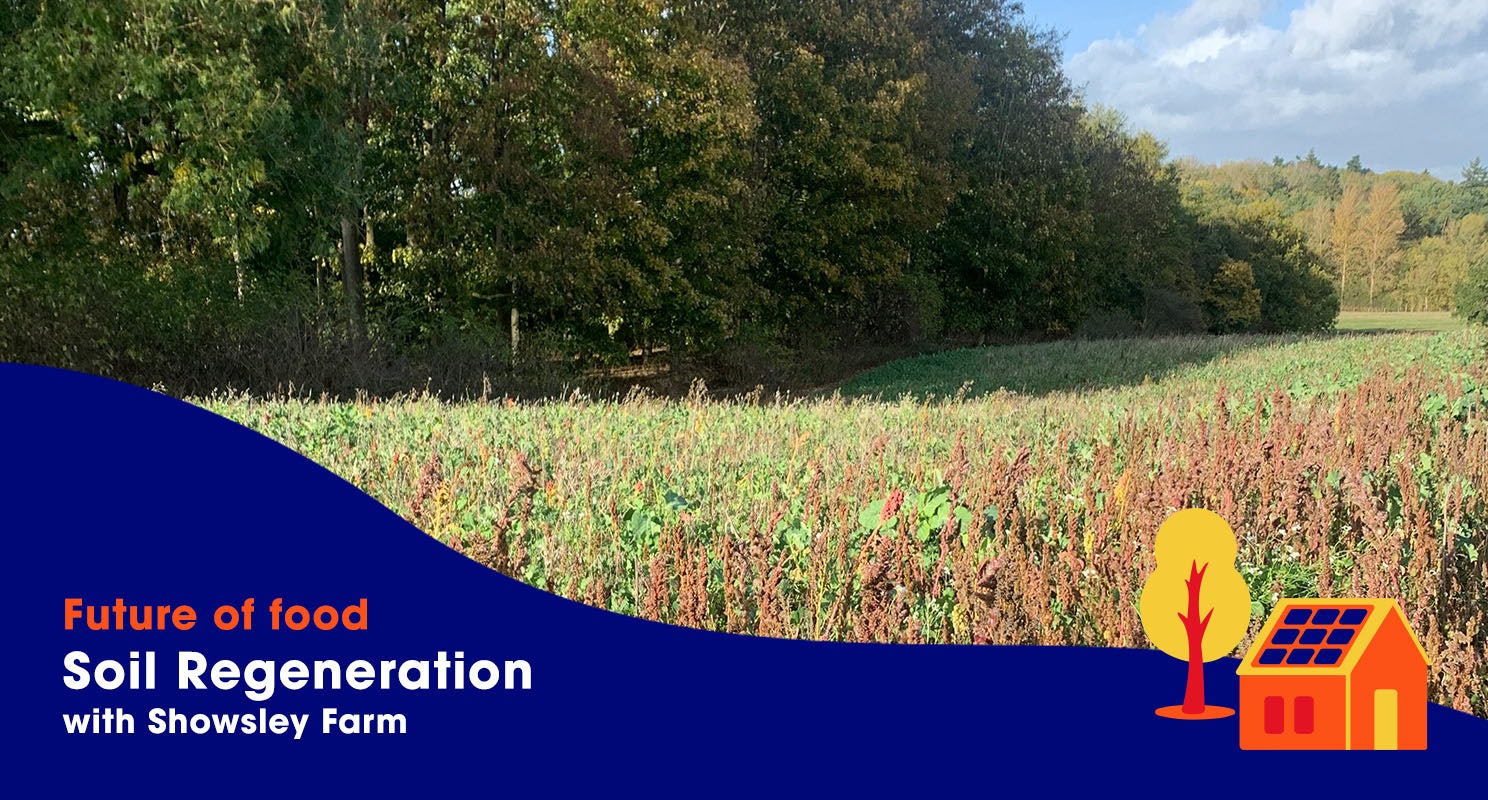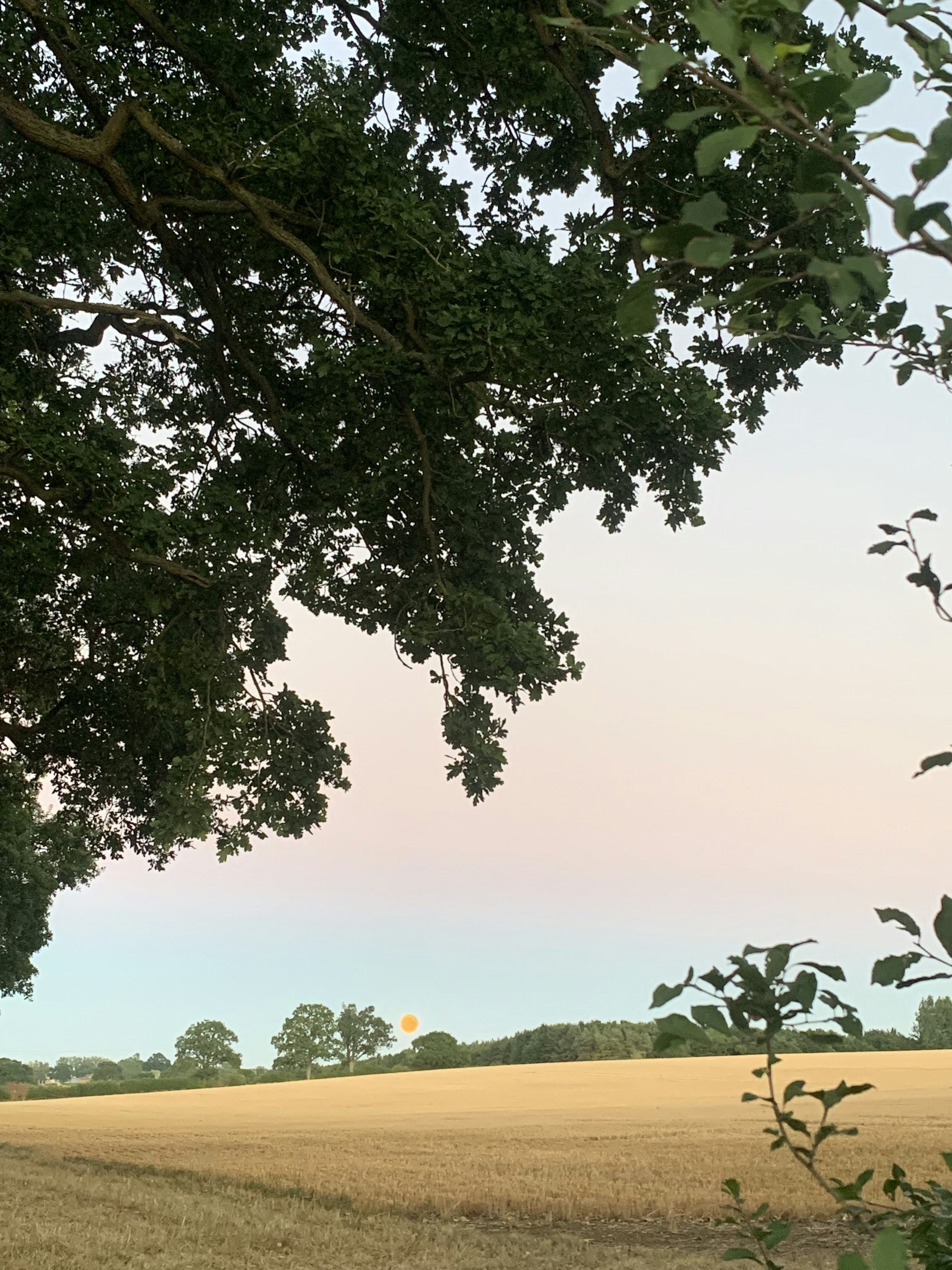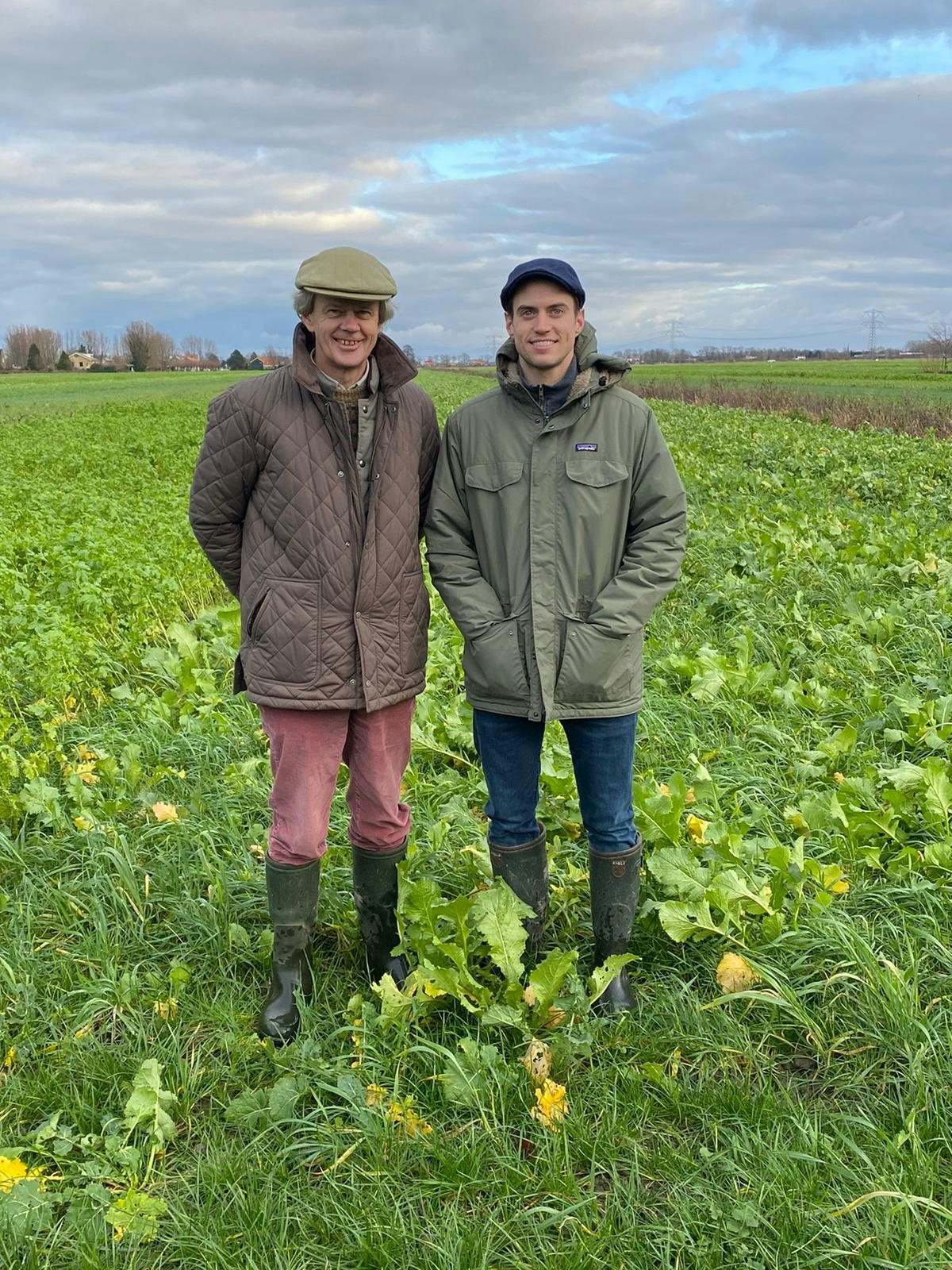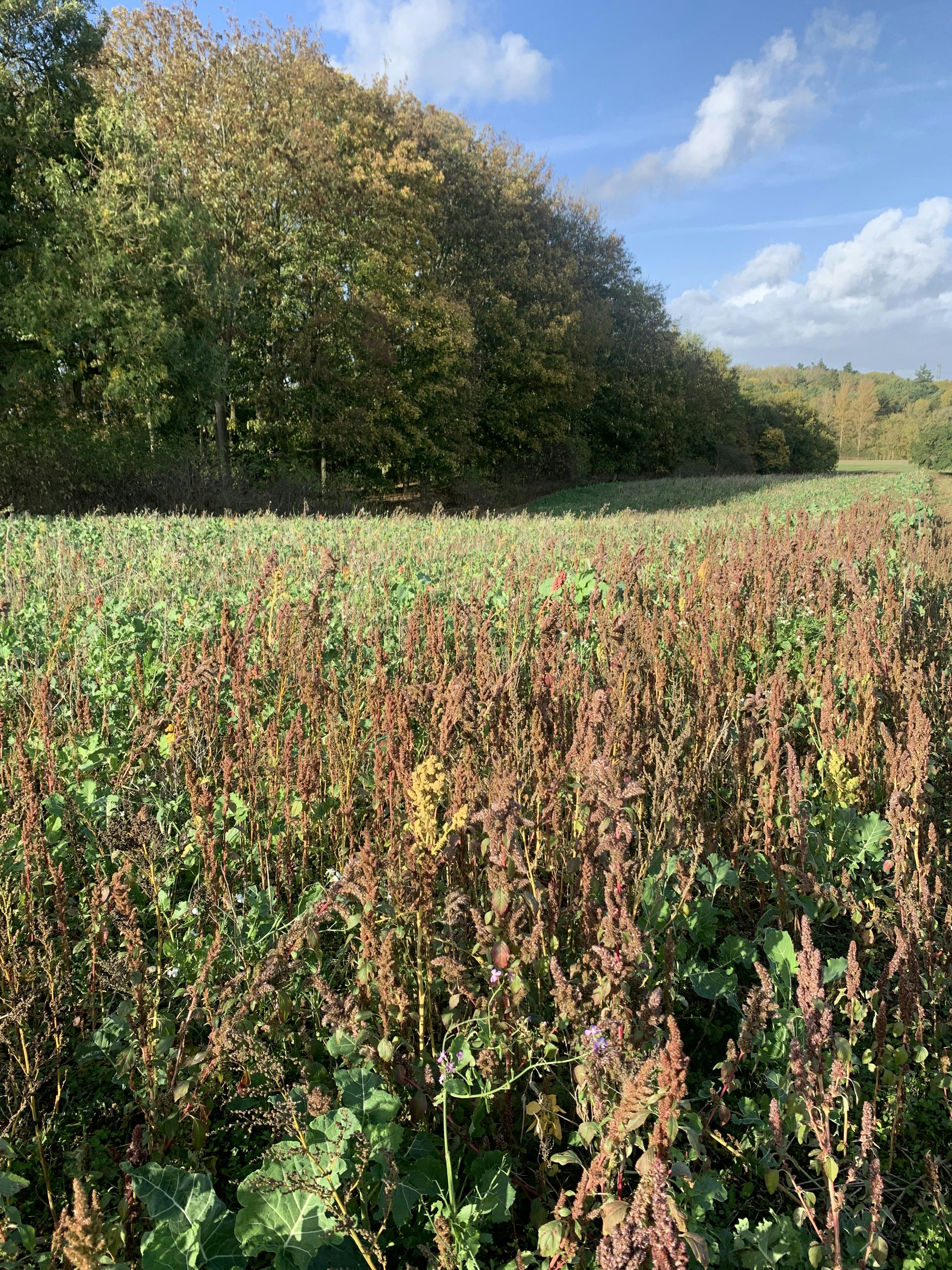In a new series ‘Future of...’, we take a look at what is shaping the future of certain industries. Here, we look at the future of food, and we caught up with Fred Krefting to ask him about soil regeneration and how methods of farming are changing in the UK and why. Fred and his Dad have a 1400 acre farm near Towcester and are focused on regenerative farming. This interview highlights the changes they have made to their farm, including making their own bio-stimulants and collaborating with Soil Heroes to sequester carbon. Fred offers a unique insight into a new age in farming and the production of food.

Could you tell me a little bit about your farm?
I have a 1400 acre farm in Northamptonshire. We're focused on regenerative farming, which is a movement that's starting to gain a lot more traction. But what does that actually mean in practice? It's a different way of looking at the land. There are some very basic principles that we've applied for a long time. The first is to disturb the soil as little as possible – doing minimum tillage or direct drill. That's why you hear people talking about ‘the end of the plough’. It's been proven that there's a top layer of soil which is essential to protect all the microorganisms and the biology that happens underneath. Ploughing it up and exposing it to the elements is damaging. Also, you want to have as little compaction in the soil as possible.
Part of the regenerative focus is also on soil structure. So, we cover cropping, we use a minimum of five different species at the same time. You don't have an economic return as a farmer for that – it’s purely to help with the soil structure – to give back to the soil. Then, rather than spraying off the cover crops with chemicals, we get sheep on to graze it off. That's very good for the soil again, because that's a natural process – they defecate and urinate, which adds nutrients back to the soil.
Farmers need to change that paradigm of thought away from yield maximisation and look more at their actual margins. Farmers’ input costs are incredibly high, especially now that prices of fertiliser have gone through the roof. All your other chemical inputs are very expensive as well. So, the idea of regenerative farming is to accept a lower yield. But actually, that shouldn't affect your margin – it will hopefully improve your margin because over time, you'll still get strong yields, but you're losing a huge chunk of the input cost.
Then it’s not all organic?
This is a good question. Organic is for me a long-term goal. It is true to become organic, all you have to really do is leave your field fallow with no chemical inputs for two years. That's not going to solve the problem. Your soil is still dead, your soil is still just weaning itself off the drugs it’s been fed – that is not going to produce a very nutrient dense crop or fruit or vegetable. And that's the problem with farming – the focus needs to be on getting the soil health back. You need your worms in there, you need your mycorrhizal bacterias, nematodes etc. You need the whole ecosystem functioning again. It's a longer-term goal, but your biodiversity and your soil health have to be strong. So – I am pro organic, but I think there are a lot of steps in between.
I'm currently growing wheat for a company. I’ve put 40 hectares aside, which I'm going to use no ‘cides’ on whatsoever. No herbicides, no fungicides, and no chemical fertiliser. To have no chemical inputs on these four fields will be an exciting experiment. But there are also a few other things that I've been experimenting with in the background… I make my own bio fertiliser.
How do you make biofertiliser?
There's a mother culture that you have to make first and then we add raw, unpasteurised, organic milk, molasses and ash. I use volcanic rock dust and filtered water to make sure that it doesn't have any chlorine in. Then its all brewed in a big Intermidate Bulk Container (IBC) over six weeks, with a heated blanket. And then that together with the mother culture will create the biofertilizer.
That sounds very expensive to make…
It's not – it's incredibly cheap! Compared to buying chemical fertiliser, it’s a fraction of the price. All you really need is the ingredients which do not cost a lot and an IBC which every farmer has and a heated blanket. This year I'm also going to make compost tea and apply the biofertiliser and the compost tea together on these fields. So they should get the nutrients that they require, but in a natural way, along with all the microorganisms they need to give them a boost. That's the plan for this year.
Can you explain what compost tea is?
There are different things you can use to make sure you actually get microbial activity and bacteria into the soil. The biofertiliser has the nutrients, but not necessarily the microbial activity. So, we'll make compost tea to supplement it.

How is Soil Heroes helping farmers?
Soil Heroes is essentially a platform which is a bit like a marketplace – they sign up farmers on one side and then they have private businesses on the other side. The farmers are sequestering carbon, the businesses are buying that, and we transact through the actual platform. Carbon is important, but it's not just about carbon – it's also about biodiversity, water retention and overall soil health benefits.
I feel that the carbon market is a very nascent industry. There's a lot of new players in it every year and I do think it's a bit of a murky world. I'm convinced there are woodlands in Scotland or Canada that have probably been sold three times over to some big corporation who's never going to go there! They want the carbon credits to sell as a marketing story and there's a big disconnect – where does the carbon credit card come from? How does it come about? What was that land used for beforehand? How is it measured? To address the climate issue we need to focus on arable and livestock, not only woodland.
The businesses that partner with Showsley via the Soil Heroes platform have all been to the farm and they're all from the food and beverage space. They want to be involved – to understand more and be part of the solution. That's what makes it appealing to those types of companies and hopefully these sorts of platforms will start working with bigger companies in the future.
Can you explain what you're looking for in the Soil Heroes’ 5 year soil test?
The soil test looks at everything from just the amount of carbon you capture in your soil to things like your soil density, structure, compaction, worm count, water filtration and the level of nutrients to name a few. When you dig down you see different colours and layers and then you can see whether or not the cover crops have been helping, how aerated the soil is. It’s quite farmer friendly and not too capital intensive.
Is there a lot of regenerative agriculture happening in the UK?
There's a lot happening in the UK. We have Groundswell, which is probably the largest regenerative agriculture conference in Europe. With the removal of subsidies Farmers are realising they might need to reduce inputs and sell carbon credits. There are many companies now in this space, all with slightly different models and concepts. It’s good – that's what the market needs. Lots of young businesses. Hopefully in four or five years time, there will be some strong winners and we'll have more good companies which are well proven – giving the right incentives to farmers.

